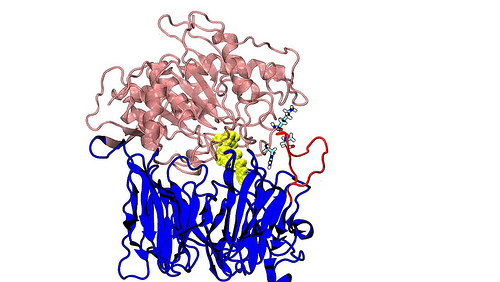
Researchers at the Scripps Research Institute have identified that the brain damage in Alzheimer’s disease is linked to an over-activation of a particular enzyme called AMPK.
In early Alzheimer’s disease one of the early findings, is the loss of synaptic connections. This is how our neurons normally communicate with each other. In mouse studies, the Scripps researchers showed that blocking this enzyme was shown to protect neurons from this loss of synapses.
This has the potential to open up new avenues to investigate, such as the possibility of developing therapies that could target the upstream mechanisms that lead to an overproduction of this enzyme AMPK.
But the worrying aspect of this discovery is that that Metformin a drug commonly used in the treatment of Type two diabetes is known to cause AMPK activation.
This was first noted back in 2011 when it was reported that Metformin causing AMPK over activation led to the loss of the ability of neurons to grow axons. Again this work was done on animal studies. This just happened at a time when other researchers elsewhere also found clues that AMPK might be implicated in Alzheimer’s disease.
Amyloid beta and tau are known to be associated with the pathology of Alzheimer’s and one research group has reported how amyloid beta can activate AMPK in neurons which then leads to the modification of the tau proteins leading to tangles of tau.
It seems highly likely that further research into AMPK will lead to greater understanding of what causes Alzheimer’s disease.
In the meantime for those people with type 2 diabetes who are on Metformin, there is no need to panic. But it could be a very good reason to ensure that your blood sugar control is kept as tight as possible and all measures taken to minimise the need for any medication.
Refs:
Elizabeth R. Mayeda, Mary N. Haan, Alka M. Kanaya, Kristine Yaffe, and John Neuhaus. Type 2 Diabetes and 10-Year Risk of Dementia and Cognitive Impairment Among Older Mexican Americans Published online before print March 20, 2013, doi: 10.2337/dc12-2158 Diabetes Care March 20, 2013
Georges Mairet-Coello, Julien Courchet, Simon Pieraut, Virginie Courchet, Anton Maximov, Franck Polleux. The CAMKK2-AMPK Kinase Pathway Mediates the Synaptotoxic Effects of Aβ Oligomers through Tau Phosphorylation. Neuron, 2013 DOI: 10.1016/j.neuron.2013.02.003
Photo Credit:
<a href=”http://www.flickr.com/photos/14173977@N00/6571826427/”>softsimu</a>
via
<a href=”http://compfight.com”>Compfight</a>
<a href=”http://www.flickr.com/help/general/#147″>cc</a>

